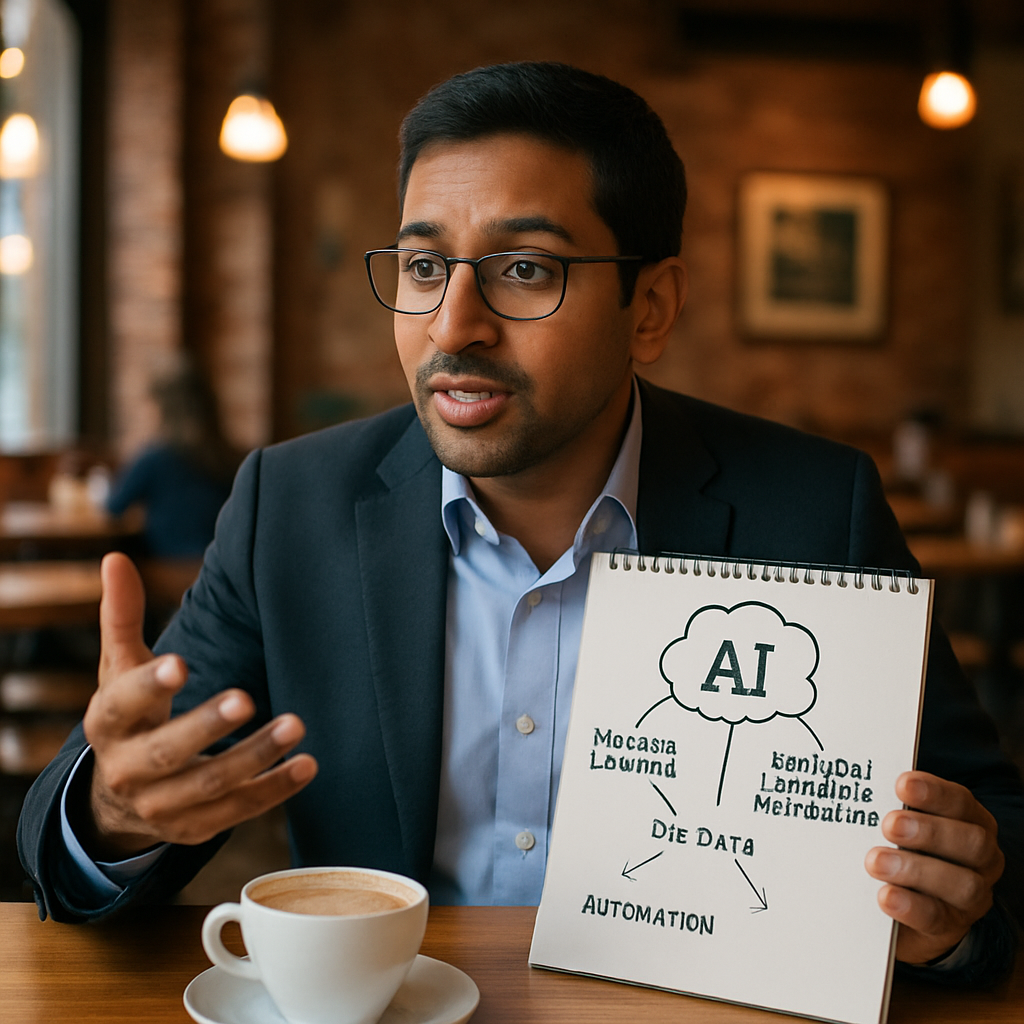India faces its largest workforce transformation as Agentic AI reshapes over 10.35 million jobs by 2030. The 2025 ServiceNow AI Skills Research shows this isn’t just automation. It’s a complete reimagining of work itself.
Why It Matters Now
Agentic AI differs from traditional automation by enhancing human decision-making rather than replacing workers. This technology collaborates with employees, making businesses more competitive in rapidly changing markets.
Sumeet Mathur, Senior Vice President and Managing Director of ServiceNow India, said: “India’s AI journey is at a defining moment. This is not just about automation; it’s about reimagining work itself.”
Indian enterprises are moving fast. Twenty-five percent are already in advanced AI transformation phases, contributing to India’s jobs transformation. This surpasses Singapore at 20 percent and Australia at 21 percent.
Strategic Advantage for Indian Businesses
Companies dedicating 13.5 percent of tech budgets to AI see measurable results. Enterprises that redesigned workflows with AI report 63 percent productivity boosts.
The shift affects specific roles differently. High-automation positions like change managers and payroll clerks see AI agents handle routine coordination. High-augmentation roles such as implementation consultants partner directly with AI systems.
Implementation consultants save 1.9 hours weekly as AI handles repetitive tasks, enhancing their contributions to the workforce. This allows focus on strategic projects that drive business value.
Market Impact Across Key Sectors
Three industries will experience the most dramatic changes:
- Manufacturing leads with 8 million affected jobs. AI transforms operational tasks, maintenance schedules, and logistics management, reshaping traditional practices.
- Retail follows with 7.6 million jobs impacted. Customer service, supply chain management, and inventory forecasting see major AI integration, driving workforce efficiency.
- Education rounds out the top three with 2.5 million positions changing. AI personalizes learning experiences while handling administrative functions, enhancing educational outcomes.
These sectors drive India’s economic growth. Their AI transformation creates competitive advantages for companies that adapt quickly to changes in the workforce.
New Job Creation Opportunities
The research projects 3 million new tech jobs in India over five years. These positions support the expanding digital economy and young workforce. The AI workforce will be critical for future growth.
Top emerging roles include:
- AI Configurators, prioritized by 66 percent of firms
- Experience Designers, focused on by 57 percent
- Data Scientists, valued by 65 percent
Software Application Developers lead with 109,700 new positions expected. Systems Software Developers and Data Engineers each add approximately 48,000 roles.
Traditional positions evolve rather than disappear. Help desk agents become digital transformation leaders. Change managers transition into AI strategists.
What Business Leaders Should Know
Data security remains the top concern for 30 percent of Indian enterprises. This represents the highest rate in the Asia-Pacific region.
Twenty-six percent of organizations remain unclear about future skill requirements, highlighting urgent needs for strategic workforce planning.
Successful AI implementation requires five key elements:
- Clear AI vision and strategy
- Platform-first thinking approach
- Right talent mix and training
- Strong governance frameworks
- Scaled Agentic AI deployment
Companies achieving these elements report 57 percent improvements in efficiency and productivity in their AI-driven projects.
Strategic Implementation Approach
Businesses must move beyond reviewing AI outputs to questioning decision-making processes. This emphasizes transparency, ethics, and workplace collaboration within their AI workforce.
Reskilling becomes critical as roles evolve. Essential skills include prototyping, enterprise resource planning, digital strategy, and data pipeline management.
ServiceNow’s RiseUp program trained 97,695 Indians in AI platform skills over 12 months. The University Academic Program partners with 20 universities across 16 states.
Mathur added: “India has a generational opportunity to lead globally by developing AI-ready talent, redesigning workflows, and reorienting business models around continuous innovation.”
Competitive Positioning
India’s large youth population creates unique advantages for AI adoption. The country can set global benchmarks in responsible innovation while unlocking talent potential through its AI workforce.
Systems Administrators experience the largest task-level changes, with 6.9 hours of weekly work automated or augmented by AI technologies. AI Systems Engineers benefit significantly, with half their tech impact coming from AI.
Even minimally impacted roles like Platform Owners save nearly 30 minutes weekly. This demonstrates AI’s broad efficiency gains across technical positions and overall workforce productivity.
The transformation extends beyond India’s borders. The country positions itself as a template for other nations facing similar workforce challenges.
Businesses that invest in AI-ready talent and governance frameworks today will drive innovation and growth tomorrow. The shift from a labor-centric to an AI-powered economy represents a historic opportunity for a strategic advantage.


